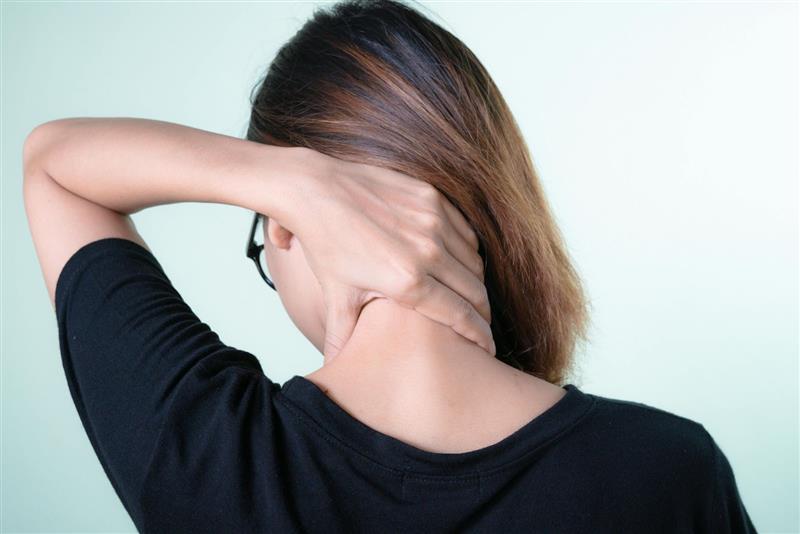Understanding Chronic Pain: Causes, Treatments, and Management Strategies
Chronic pain is a pervasive health issue that affects millions worldwide, significantly impacting quality of life and daily functioning. In regions like Newport Beach, where active lifestyles are prevalent, managing chronic pain becomes crucial for maintaining overall well-being. This comprehensive guide delves into the causes of chronic pain, explores various non-surgical treatment options, and outlines effective management strategies to empower patients, caregivers, and healthcare professionals in their journey toward pain relief.
Managing Chronic Pain: Proven Strategies for Lasting Relief
What is Chronic Pain?
Chronic pain is defined as pain that persists for 12 weeks or longer, often continuing beyond the expected period of healing. Unlike acute pain, which serves as a warning signal for injury, chronic pain can persist even after the initial cause has been addressed. It can stem from various sources, including injuries, surgeries, or underlying health conditions, and may manifest in different forms such as:
- Neuropathic Pain: Resulting from nerve damage or dysfunction.
- Nociceptive Pain: Arising from tissue damage or inflammation.
- Mixed Pain: A combination of both neuropathic and nociceptive pain.
Common Causes of Chronic Pain
Understanding the root causes of chronic pain is essential for effective management. Some prevalent causes include:
- Musculoskeletal Disorders: Conditions like arthritis, fibromyalgia, and osteoporosis.
- Neurological Disorders: Such as multiple sclerosis or neuropathies.
- Injuries: Past injuries that haven’t healed properly.
- Post-Surgical Pain: Persistent pain following surgical procedures.
- Psychological Factors: Stress, anxiety, and depression can exacerbate pain perception.
Impact of Chronic Pain
Chronic pain extends beyond physical discomfort, affecting various aspects of an individual’s life:
Physical Consequences
- Reduced Mobility: Persistent pain can limit movement and physical activity.
- Sleep Disturbances: Pain often interferes with sleep patterns, leading to fatigue.
- Weakened Immune System: Ongoing pain can suppress immune function, increasing susceptibility to illnesses.
Emotional and Psychological Effects
- Depression and Anxiety: Chronic pain is closely linked to mood disorders.
- Cognitive Impairment: Persistent pain can affect concentration and memory.
- Social Isolation: Individuals may withdraw from social activities due to pain-related limitations.
Non-Surgical Pain Treatments
For many individuals, non-surgical treatments offer effective relief from chronic pain without the risks associated with surgery. These treatments focus on alleviating pain, improving function, and enhancing quality of life.
Physical Therapy
Physical therapy involves exercises and techniques designed to improve mobility, strengthen muscles, and reduce pain. Therapists tailor programs to individual needs, focusing on areas affected by chronic pain.
Medications
Various medications can help manage chronic pain, including:
- Analgesics: Over-the-counter pain relievers like acetaminophen.
- Nonsteroidal Anti-Inflammatory Drugs (NSAIDs): Such as ibuprofen for inflammation-related pain.
- Antidepressants: Certain types can help with nerve pain.
- Anticonvulsants: Medications like gabapentin for neuropathic pain.
Acupuncture
An ancient Chinese practice, acupuncture involves inserting thin needles into specific points on the body to alleviate pain and promote healing. It’s believed to stimulate the body’s natural painkillers and increase blood flow.
Chiropractic Care
Chiropractic treatments focus on diagnosing and treating musculoskeletal disorders, particularly those related to the spine. Adjustments and manipulations can help alleviate pain and improve function.
Cognitive Behavioral Therapy (CBT)

Pain Relief Techniques
In addition to formal treatments, various techniques can assist in managing chronic pain:
Mindfulness and Meditation
Practicing mindfulness and meditation can help individuals focus on the present moment, reducing stress and pain perception. Regular practice can lead to long-term improvements in pain management.
Heat and Cold Therapy
Applying heat can relax muscles and improve blood flow, while cold therapy can reduce inflammation and numb sharp pain. Alternating between the two can be beneficial for certain conditions.
Massage Therapy
Massage can alleviate muscle tension, improve circulation, and promote relaxation, all of which can contribute to pain relief.
TENS Therapy
Transcutaneous Electrical Nerve Stimulation (TENS) involves using a device that sends low-voltage electrical currents to the skin, helping to reduce pain signals.
Individualized Pain Care
Effective chronic pain management requires a personalized approach, considering the unique needs and circumstances of each individual. Healthcare providers in Newport Beach emphasize the importance of:
- Comprehensive Assessments: Evaluating medical history, lifestyle, and pain patterns.
- Collaborative Care: Working with a multidisciplinary team to address all aspects of pain.
- Patient Education: Empowering patients with knowledge about their condition and treatment options.
- Regular Monitoring: Adjusting treatment plans based on progress and feedback.
Long-Term Pain Solutions
Managing chronic pain is an ongoing process that involves consistent effort and adaptation. Long-term strategies include:
Lifestyle Modifications
Incorporating healthy habits such as regular exercise, balanced nutrition, and adequate sleep can significantly impact pain levels and overall well-being.
Stress Management
Chronic stress can exacerbate pain. Techniques like deep breathing, yoga, and engaging in hobbies can help manage stress effectively.
Support Systems
Building a strong support network of family, friends, and support groups can provide emotional assistance and practical advice.
Ongoing Communication with Healthcare Providers
Regular check-ins with healthcare professionals ensure that treatment plans remain effective and adjustments are made as needed.
Conclusion
Chronic pain is a complex condition that affects various facets of an individual’s life. However, with a comprehensive understanding of its causes, a range of non-surgical treatment options, and personalized management strategies, individuals in Newport Beach can navigate their journey toward pain relief and improved quality of life. Collaboration between patients, caregivers, and healthcare professionals is key to developing effective, long-term solutions for chronic pain management.
Frequently Asked Questions (FAQs)
Q1: What differentiates chronic pain from acute pain?
A: Acute pain is temporary and typically results from a specific injury or surgery, resolving as the body heals. Chronic pain persists for more than 12 weeks and may continue even after the initial cause has been treated.
Q2: Are non-surgical treatments effective for chronic pain?
A: Yes, non-surgical treatments like physical therapy, acupuncture, and medication management can be highly effective, especially when combined in a comprehensive pain management plan.
Q3: How do psychological factors influence chronic pain?
A: Psychological factors such as stress, anxiety, and depression can exacerbate the perception of pain. Addressing these through therapy and stress-reduction techniques can significantly improve pain management outcomes.
Q4: What should I expect during a consultation with a pain management specialist?
A: During a consultation, the specialist will review your medical history, assess your pain, and discuss various treatment options to develop a personalized management plan tailored to your needs.
Q5: Can lifestyle changes really make a difference in managing chronic pain?
A: Absolutely. Incorporating regular exercise, a balanced diet, adequate sleep, and stress management techniques can significantly reduce pain levels and improve overall well-being.



Leave a Reply
You must be logged in to post a comment.